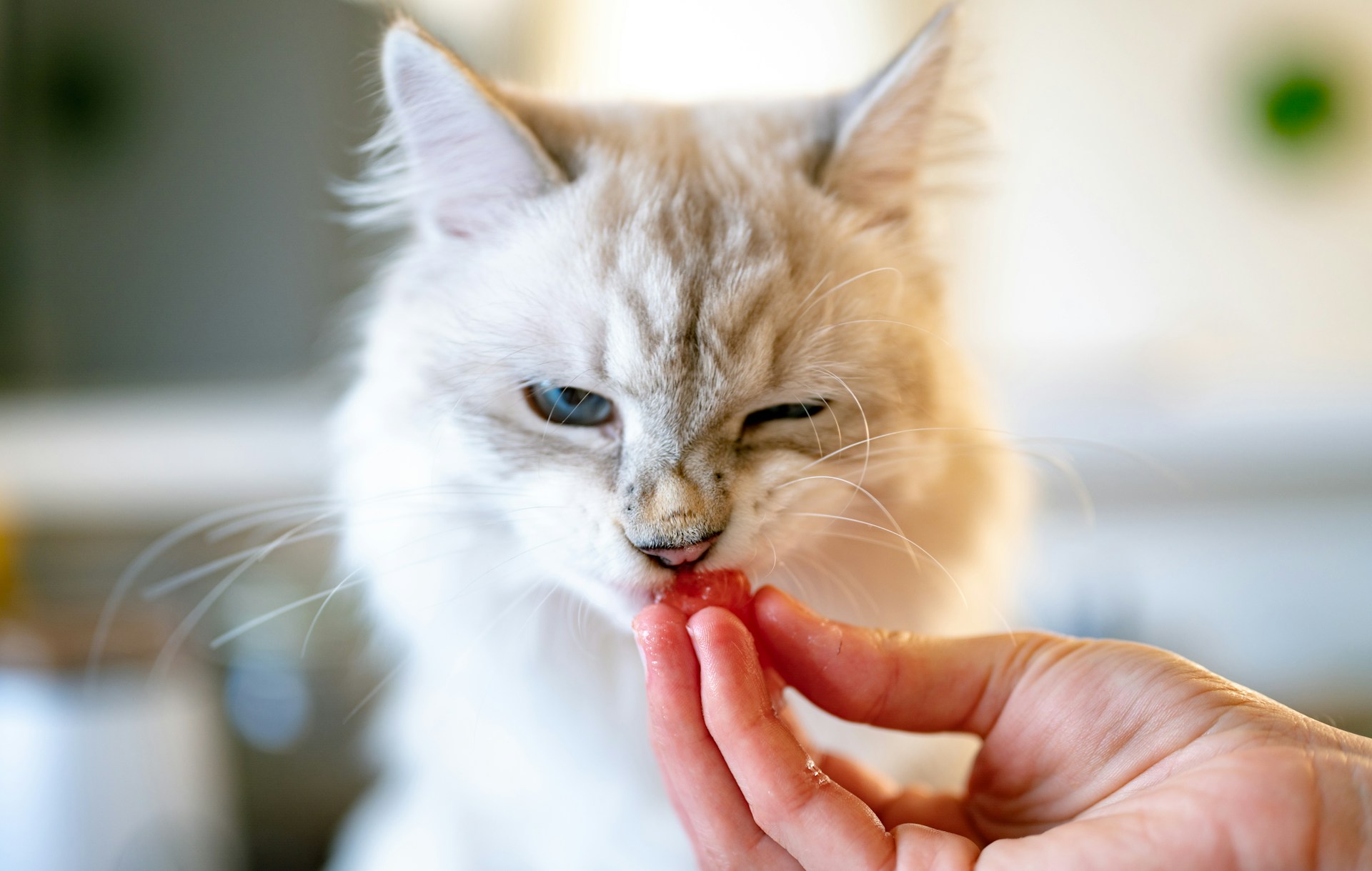
When Sasha, my beloved Rottie X, developed a tumor on her hind leg and was diagnosed with mast cell cancer, she was already 11 years old and arthritic. The tumor was inoperable because of its size and location, and chemotherapy simply wasn’t a viable option for treatment.
At this stage, Sasha was still eating normally, she wasn’t in pain, and her personality was unchanged. It wasn’t a time for giving up, so I decided to find other ways of fighting and managing cancer that would keep her comfortable for as long as possible.
The next step was to meet with a holistic veterinarian offering therapy specifically for pets with cancer. During the consultation, he explained how vitamin C could help ailing pets through supplements and intravenous therapy.
It was only then that I learned about vitamin C for pets and how it can benefit all fur companions, including those fighting off infections, not only those diagnosed with cancer.
So, if you’re looking for a natural way to improve your pet’s immune system, energy, and well-being, then understanding how to introduce ascorbic acid is a good start. Vitamin C protects healthy cells, but cats and dogs cannot consume over-the-counter supplements or whole fruits to benefit from it.
The purpose of this blog is to look at safe ways of giving vitamin C to pets and why it should be considered when your cat or dog is recovering from illness or is diagnosed with cancer. I don’t promote or push specific products because this guide is based on my experience with the supplements I’ve given my pets in the hopes that it will help you and your fur friend.
Is Vitamin C Good for Dogs and Cats?

We’re all familiar with vitamin C as an immune booster and a supplement that people take against colds and flu, but does it work the same way for pets?
Surprisingly, vitamin C is a powerful antioxidant for pets that helps with energy, aging, and the control of free radicals in the body. It works to reduce inflammation, assists with collagen production for joint support, and also improves their immune systems.
So when is the right time to supplement your dog or cat’s diet with this vitamin?
Healthy pets don’t really need vitamin C or ascorbic acid in their diets, but cats and dogs that have suffered a sudden health issue, such as injuries, illnesses, or physical stress, can benefit from it. For pets diagnosed with cancer, the addition of vitamin C as a natural treatment helps with energy and elevates their mood.
Ascorbic acid also provides support against diseases or conditions such as kennel cough, parvovirus, various viral or skin infections, and post-surgery recovery.
Ascorbic acid is so beneficial for pets because it is an antioxidant that protects the cells from oxidation and damage caused by free radicals. Not only does this protect the body against the advancement of disease, but it also aids the healing process in the event of illness and injuries.
For senior cats and dogs, ascorbic acid as a healthcare supplement can slow the progression of degenerative diseases such as arthritis. It improves joint health by producing collagen, which supports mobility and minimizes hip dysplasia and joint-related problems.
What is the Best Type of Vitamin C for Pets?

The best type of ascorbic acid supplement for pets is water-soluble ascorbic acid. Neither dogs nor cats can digest regular vitamin C, and it will simply cause digestive upset. To avoid cramping, diarrhea, and gastro issues in pets, water-soluble vitamin C is gentle and easier for them to digest.
The supplements are best provided with food and in half the dose to start off with, then gradually increased to the higher dosage. This not only helps dogs and cats adjust to the vitamin but also minimizes the possibility of digestive upset.
If the dosage for your dog is 1000 mg of vitamin C per day, start with 500 mg and slowly increase the dose over a few days while monitoring for digestive problems such as loose stools and vomiting. Reduce the dosage if such symptoms occur.
Can I Give My Pet Too Much Vitamin C?

If you give your canine or feline companion too much vitamin C, they will most likely develop diarrhea. Another complication of feeding an abundance of ascorbic acid is bladder stones. Too much vitamin C causes the pH of urine to become acidic, increasing the risk of forming calcium oxalate stones that can lead to a bladder obstruction.
The slow introduction of ascorbic acid according to the recommended dosage or as per your veterinarian can prevent the complications of diarrhea or bladder stones.
Vitamin C Therapy and Pet Cancer

We know that ascorbic acid is a supplement that cats and dogs can benefit from, but how effective is it when managing cancer?
When Sasha was examined by our holistic vet, she had a large mass on her leg and several smaller lumps on her body that were diagnosed as mast cell cancer. Our vet suggested high doses of vitamin C to minimize the progression of cancer while helping her immune system recover. As she had undergone previous surgery to remove a lump near her tail only a month or two before the consultation, the hair that was shaved still hadn’t grown back. The vet explained that her body was using most of its resources to ward off cancer rather than regrow the missing hair.
At this point, he recommended intravenous vitamin C therapy as a treatment. It included high doses of IV vitamin C and dissolved oxygen to bypass the digestive system and the potential for gastrointestinal problems.
Sasha received a few sessions of therapy before it became too expensive, and she was unable to travel to the vet because of her ailing joints, but I will say that after her session, she had more energy, an appetite, and her mood seemed to improve. I then started her on an ascorbic acid supplement that I added to her food. I used the 1000 mg Solal fat-and water-soluble vitamin C in capsule form. I would empty the powder inside the capsule onto her food and then monitor her for signs of digestive upset. She did very well on the 1000 mg supplement, but I should also add that at this stage her cancer was already quite advanced, so I cannot determine whether it slowed the progression of the cancer. It did improve her energy and mood, but she did best when it was provided intravenously.
What the Research Says…
Research concerning IV vitamin C and cancer in humans has shown how IV-administered ascorbic acid helps to prevent the progression of cancer cells, minimizes tumor growth, and relieves symptoms of nausea and fatigue associated with chemotherapy. It also protects healthy cells against damage caused by toxins that are released by cancer.
Studies involving IV vitamin C and cancer in dogs have shown that high doses of ascorbate reduce the survival of cancer cells. The high IV doses of ascorbate are safely delivered to pets, making it a suitable option in the management of different types of cancer, including osteosarcoma and mast cell cancer.
Can Dogs Receive Vitamin C for Kennel Cough and Other Conditions?

Yes, dogs can be given a daily dose of ascorbic acid if they have infections such as kennel cough, parvovirus, and skin infections. It is a natural way to improve their immune systems, especially in older dogs, to fight both viral and bacterial infections.
Vitamin C Dosage for Pets

Pets can benefit from vitamin C, but it should always be administered correctly to prevent digestive upset, such as diarrhea and vomiting.
The following guidelines provide a general daily dosage of vitamin C for pets:
Puppies and Small Dogs: 200-250 mg ascorbic acid.
Medium Dogs: 400-500 mg ascorbic acid.
Large Dogs: 750 mg ascorbic acid.
Cats: 150 mg-300 mg ascorbic acid.
For older dogs and those battling cancer, higher doses of vitamin C are necessary to strengthen the immune system, combat cell damage, and provide ailing pets with the energy they need. Up to 1000 mg of water-soluble vitamin C for every 50 lbs of body mass is suitable.
The above dosages only serve as a guideline based on the body weight and healthcare needs of pets. It is best to introduce new supplements gradually to determine whether pets can tolerate the new vitamin. Always discuss providing supplements to your dog or cat with a trusted veterinarian.
Why Give Vitamin C to Pets?

Vitamin C is a powerful antioxidant that works to support the health of pets by protecting cells from damage. Whether your cat or dog is fighting an infection or needs an alternative therapy to target cancer, ascorbic acid is a safe way to strengthen their immune system, improve their energy levels, and just make them feel better.
If you are looking for natural support for your dog or cat, ascorbic acid is a wonderful supplement for their health and well-being.

Leave a Reply to Is There a Connection Between Dry Dog Food and Cancer in Pets? – Dog Cancer Journey Cancel reply